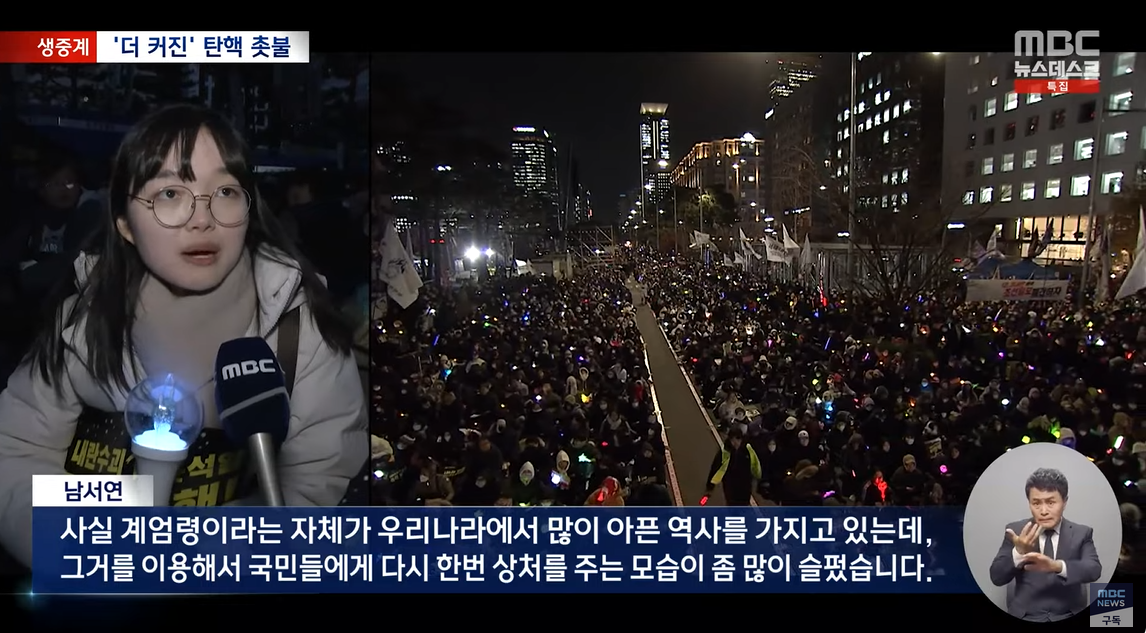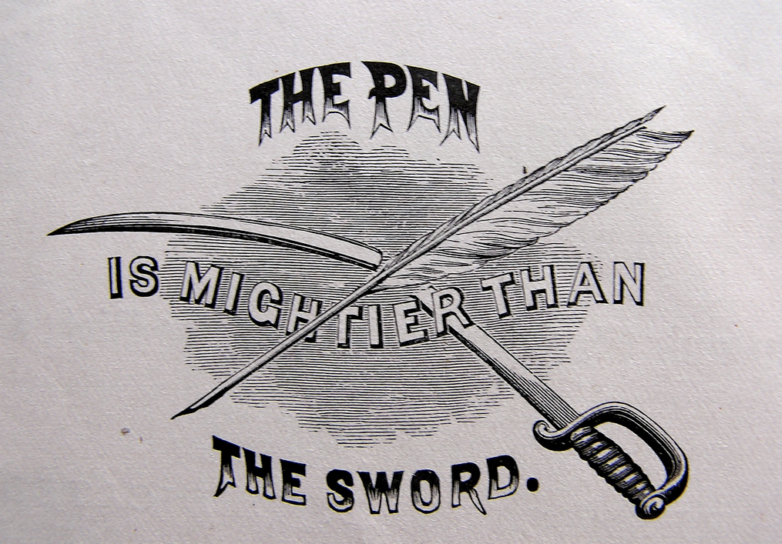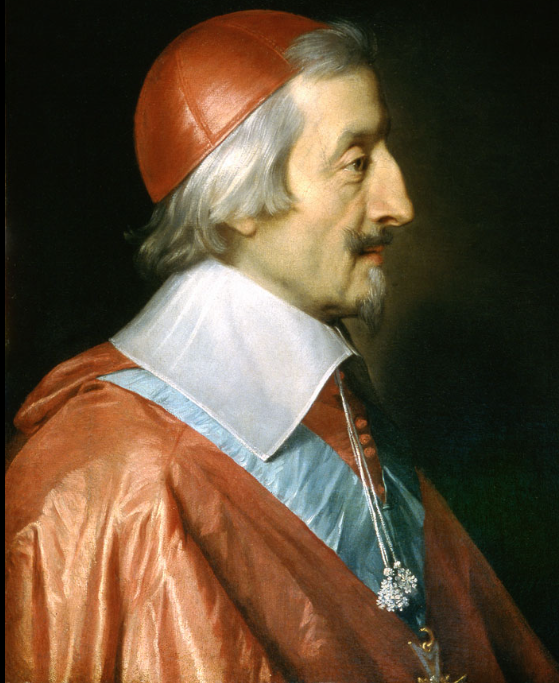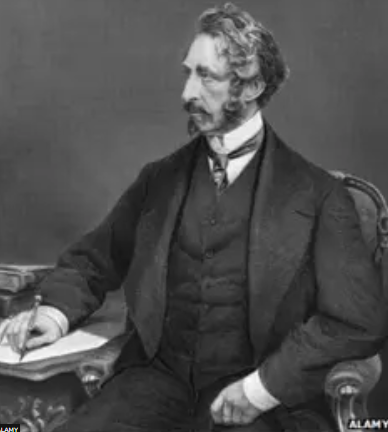추기경 리쉘리와 윤석열의 차이. '칼을 버리고, 펜을 들어라'는 리쉘리 추기경. 정치적 토론과 타협의 대상들을 '범죄자'로 간주하고 계엄군을 동원했던 윤석열.
다시 돌이켜보는 영어 문장, '펜은 칼보다 강하다' 윤석열의 '사고방식' 무엇이 근본적으로 잘못되었길래, '내란죄'를 저지르게 되었는가? 윤석열은 중학생 시절, 영어 교과서나 참고서 맨 앞에 나오는 '펜은 칼보다 강하다 The pen is mightier than the sword) ' 이 말을 까먹어 버렸다. 초등학생도 이해할 수 있는 문장의 뜻이다.
윤석열은 자기의 정치 경쟁자, 야당 국회의원들을 '범죄자'로 간주하고, 특공대에게 명령해 그들을 체포하려고 했다. 정치적 주장이다르면 '토론'과 '협상'이라는 수단을 통해 경쟁하는 국회를 '범죄소굴'로 제 멋대로 이름짓고, 국회를 쳐들어갔다.
그러나 윤석열의 계엄군보다, 시민들과 학생들의 역사의식이 더 강하다. 한국인들은 518광주민주화 운동에서 전두환 계엄군의 범죄를 마음 속에 기억하고 있다. 윤석열의 계엄군이 국회를 침입해오자, 순식간에 시민들이 맨몸으로 무장한 계엄군들을 막아섰다.
나도 한참동안 잊고 지냈던 영어 문장이다. '펜은 칼보다 강하다'는 말을 누가 처음 썼는가 찾아보았다.
-----------
1839년 에드워드 불워 리튼의 역사극 '추기경 리쉘리(Cardinal Richelieu)'에 등장하는 말이다.
추기경 리쉘리는 (루이 13세의 장관) 그를 살해하려는 음모를 알아챘다. 그러나 카톨릭 신부님 신분이어서 그의 적들을 없애기 위해 무기를 들 수 없었다.
프랑소와라는 그의 시종이 "그럼 지금부터 다른 무기를 사용하실 수 있사옵니다" 라고 말했다.
추기경 리쉘리가 그 시종 말에 동의하며, "펜은 칼보다 더 강하다" "칼을 저리 치워라. 칼 없이도 나라를 지킬 수 있다"
이 말은 금새 유명해져 입소문을 타고 널리 퍼져, 1840년대는 누구나 알아 들을 수 있는, 자명한 말이 되었다.


(추기경 리쉘리(Cardinal Richelieu) 1585-1642 추기경이자 , 프랑스 루이 13세 시절, 정치가 수상 역임)

Who first said 'The pen is mightier than the sword'?
Published
9 January 2015
Cartoon showing a pencil which is broken therefore creating two pencils
Image source,Lucille Clerc
By Alison Gee
BBC News
Tribute cartoons to the journalists at Charlie Hebdo compare pencils with guns, writers with fighters - it's also why some demonstrators are holding pens and pencils in the air. Many of the cartoons assert that "the pen is mightier than the sword". But where does this idea originate?
The English words "The pen is mightier than the sword" were first written by novelist and playwright Edward Bulwer-Lytton in 1839, in his historical play Cardinal Richelieu.
Richelieu, chief minister to King Louis XIII, discovers a plot to kill him, but as a priest he is unable to take up arms against his enemies.
His page, Francois, points out: But now, at your command are other weapons, my good Lord.
Richelieu agrees: The pen is mightier than the sword... Take away the sword; States can be saved without it!
The saying quickly gained currency, says Susan Ratcliffe, associate editor of the Oxford Quotations Dictionaries. "By the 1840s it was a commonplace."
Today it is used in many languages, mostly translated from the English. The French version is: "La plume est plus forte que l'epee."
에드워드 불워-리튼
Edward Bulwer-Lytton

Edward Bulwer-Lytton
Bulwer-Lytton is also renowned for the opening line "It was a dark and stormy night" and has given his name to an annual contest, external for badly written first sentences.
This is the first sentence of his 1830 novel, Paul Clifford, in full:
It was a dark and stormy night; the rain fell in torrents - except at occasional intervals, when it was checked by a violent gust of wind which swept up the streets (for it is in London that our scene lies), rattling along the housetops, and fiercely agitating the scanty flame of the lamps that struggled against the darkness.
In addition, Bulwer-Lytton is credited with popularising the term "the great unwashed" which he used in the same novel.
464 gray line
According to the Cambridge Dictionaries website, external the saying emphasises that "thinking and writing have more influence on people and events than the use of force or violence".
But Bulwer-Lytton was not necessarily the first to express this thought. Ratcliffe points to two earlier texts.
Robert Burton, in The Anatomy of Melancholy, published in the early 17th Century, describes how bitter jests and satire can cause distress - and he suggests that "A blow with a word strikes deeper than a blow with a sword" was already, even in his day, an "old saying".
A similar phrase appears in George Whetstone's Heptameron of Civil Discourses, published in 1582, Ratcliffe notes. "The dashe of a Pen, is more greeuous then the counterbuse of a Launce." (The dash of a pen is more grievous than the counter use of a lance.)
Going back further, the Greek poet Euripides, who died about 406 BC, is sometimes quoted as writing: "The tongue is mightier than the blade." But classics professor Armand D'Angour of Oxford University is doubtful about this.
"Occurrences of 'tongue' in Euripides are generally negative - the tongue (i.e. speech) is less reliable than deeds," he says.
Demonstrators holding pens and pencils in Barcelona
Image source,AFP
The Roman poet Virgil too seems to take a pessimistic view of the power of speech, D'Angour says. "In the face of weapons of war, my songs avail as much as doves in the face of eagles," he wrote in Eclogue 9.
But there was a belief in classical times that the written word had the power to survive "and transcend even the bloodiest events... even if they didn't actually prevail against arms in the short term," says D'Angour.
Napoleon is another who is said to have compared word and weapon. "Four hostile newspapers are more to be feared than 1,000 bayonets," he is sometimes quoted as saying.
Again, it's questionable whether these words did actually cross his lips, says Michael Broers, professor of Western European history at Oxford University - but he says the sentiment definitely chimes with Napoleon's views.
"He respected the press and feared it too. He realised all his life the power of literature and the power of the press," Broers says. When Napoleon came to power there were dozens of newspapers in France but he suppressed most of them, sanctioning just a handful of publications.
He also realised that the pen, in his own hand could be a weapon, says Broers. "He knew that he could undermine the allies who had defeated him through his memoirs and he did."
The cartoons published in tribute to the murdered Charlie Hebdo staff carry a range of messages - that the pencil will ultimately defeat the gunman, that one pencil when broken will become two, or that every gun will find itself opposed by many pens. The demonstrators holding pencils aloft are signing up to the same set of ideas.
Who first said 'The pen is mightier than the sword'?
Tribute cartoons to Charlie Hebdo journalists compare pencils with guns - but where does the idea that the pen is mightier than the sword originate?
www.bbc.com
'정치철학 > 민주주의(democracy)' 카테고리의 다른 글
| 비겁한 김문수, 공정 게임하라. 김문수의 '마은혁'에 대한 욕설을 보며. 민주주의에 대한 김문수의 무지와 인간적인 오만 (4) | 2025.03.11 |
|---|---|
| 198가지 비폭력 시위, 시민 불복종 방법 - 진 샤프 (0) | 2025.03.10 |
| [자살의 사회적 예방] 윤석열의 탄핵 이후. 어떠한 얼굴은 한 K-민주주의 체제를 만들어 놓았는가? 어쩌다가 우리는 이웃이 죽어가도 모르는 방관자가 되어 버렸나? (4) | 2025.03.07 |
| 전한길 극우개신교의 '광주 금남로' 집회를 보며. 광주 518. 아아 광주여! 우리나라의 십자가여! (김준태 시인) (1) | 2025.02.16 |
| 관료주의 연상 단어. 붉은 테이프 (red tape) 1736년 잉글랜드 기원 (1) | 2024.11.23 |
| 관료주의에 대한 3가지 비판 관점 (0) | 2024.11.23 |
| 이재명의 민주당과 윤석열의 국민의힘보다 더 민주적 정당이 필요하다. (2) | 2024.11.21 |



